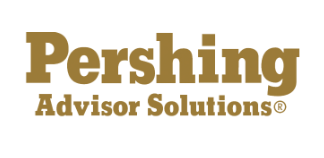You’re a Fiduciary: Now What?
November 2016
Every business owner who sponsors an employee retirement plan is a fiduciary. What does it mean?
By Phil Lazzari

Starting a company 401k plan is a great milestone for a small businesses owner. It not only helps your employees save for their financial future, but it sends a strong message to your team that you’re thinking of their needs. But as an owner of a business, and thus the very likely trustee for the plan, your work isn’t over. While launching a plan is an important step, being a fiduciary on that plan comes with a lot of responsibilities. Here’s what you should know.
You’re on the hook
As a trustee of your company’s 401k plan, you’re automatically a fiduciary – a term that means you’re personally responsible for the well-being of the plan. This includes accountability for the plan’s fees, product offerings, participant education and more, and if you make a mistake, you can be held personally liable.
I’m not saying this to scare you. Rather, I’m sharing this so you understand the gravity of what it means to be a fiduciary.
The good news is you don’t have to do it alone. You can hire a co-fiduciary – in the form of staff or a financial advisor – to help manage the plan and take on the responsibility with you. With that person or group devoting time to the plan, risk can be mitigated, and much will take care of itself, giving you the peace of mind to focus on other parts of your business.
Watch for red flags
When selecting a co-fiduciary, strongly consider using an unbiased or independent third party. Look for the “3(21) Fiduciary” label, which means that person/business takes on liability with you and is bound by law to provide advice that is in the best interest of the plan.
Historically, wirehouses have offered financial advisors to their clients, but often these advisors don’t act as fiduciaries – or have 3(21) status. In this setup, an advisor often recommends only its own company’s products. That’s a clear conflict of interest. If you want truly unbiased advice, look for an independent advisor.
Remember: a co-fiduciary is partly responsible for managing your employees’ retirement savings, so make sure their interests are aligned with yours.
Things are changing
Adding to the complexity of fiduciary status is ever changing regulation. In recent years, the Department of Labor, the government agency that aims to ensure the adequacy of America’s workplaces, has been much more proactive in the 401k space, implementing several participant-friendly reforms. Business owners who offer a 401k plan, no matter how big or small, have a legal responsibility to pay attention.
The most important recent regulatory change is the fiduciary rule, a recently enacted and long-debated regulation that expands the responsibility of financial advisors with regard to retirement assets. Our president-elect has indicated he may repeal the rule, but there’s a lot of uncertainty around whether or not that will happen. What we do know is there’s likely to be a lot of back and forth, so be sure to keep an eye on it and any other regulation – or delegate that to your co-fiduciary.
It’s about transparency
While you might think the most important role as the head – or sponsor – of a plan is to keep fees low and returns high, when it comes to being a fiduciary, it’s as much about transparency as it is about performance. You must disclose fund fees to employees and be prepared to answer any questions they may have. Communication is key, and not having a written process in place could increase your odds of a lawsuit.
As you’re increasing transparency with your employees, you should also require the same of your financial advisor(s). In fact, much of the recent regulation focuses on transparency between advisors and their clients. This is why we’re seeing a shift from revenue sharing agreements, where fees are baked into an overall plan cost, to full fee, where the cost of maintaining/advising the plan is distinctly separate from the allocation fund. When you get more detailed information – which is the standard with 3(21) fiduciaries – it’s easy to pass along to your employees, fulfilling your responsibility as a fiduciary.
It doesn’t have to hurt financially
The move toward transparency not only promotes trust, it also keeps more money in you and your employees’ pockets. For instance, when you no longer use revenue share models, your employees have the option of lower cost funds. That will be music to their ears, and happy employees are more productive employees.
Even more: as your co-fiduciary investigates fees to attain transparency, he or she will be in a better place to negotiate rates on your behalf. A renegotiation led by an 3(21) fiduciary nearly always leads to plan savings, even when accounting for the advisor fee.
You can keep your plan
One of the biggest misconceptions about hiring an independent financial advisor is that you’ll have to move your existing plan to a new fund provider. However, most often this is not the case. In fact, the majority of the time, we’ve been able to keep our clients within their current provider.
Normally, the only change is you’ll have more investment options to offer your employees. Even with small plans, a 3(21) fiduciary can normally introduce index products, target date funds, and many more options. Once these are available, that same advisor will typically also provide the education your employees need to choose the right plan for their needs, and answer any questions they, and you, might have.
In short: as a fiduciary, you have a lot on the line. But as a business owner, you already have a million things to think about. So when you’re assessing your 401k plan, be sure to understand your role and responsibilities. Think about working with a 3(21) fiduciary to help you through the fiduciary minefield.




